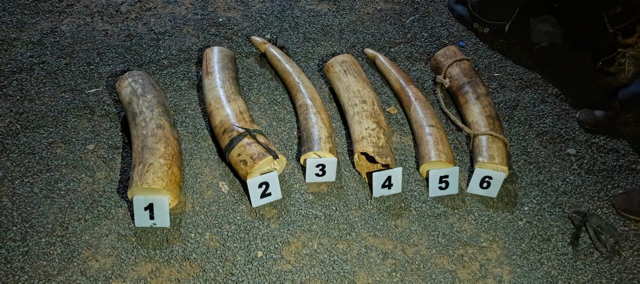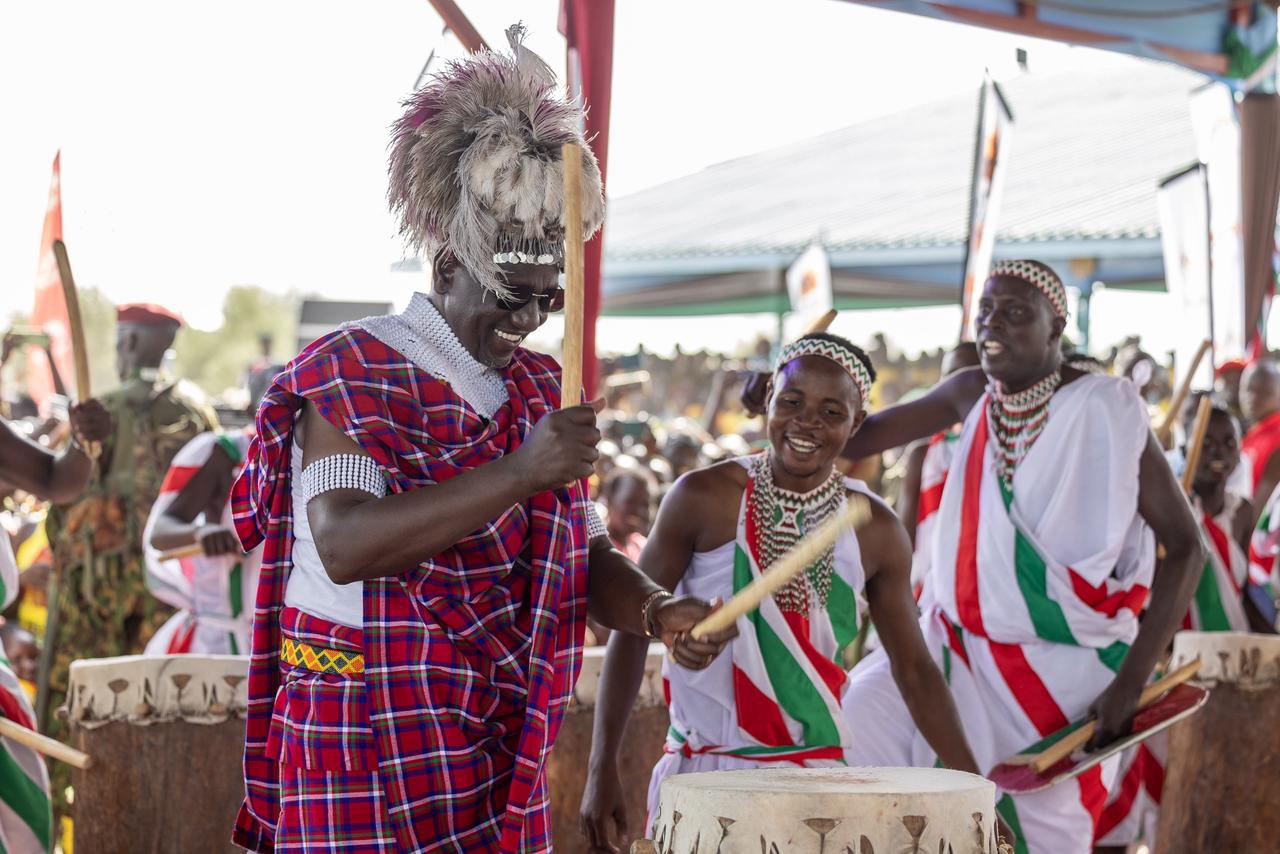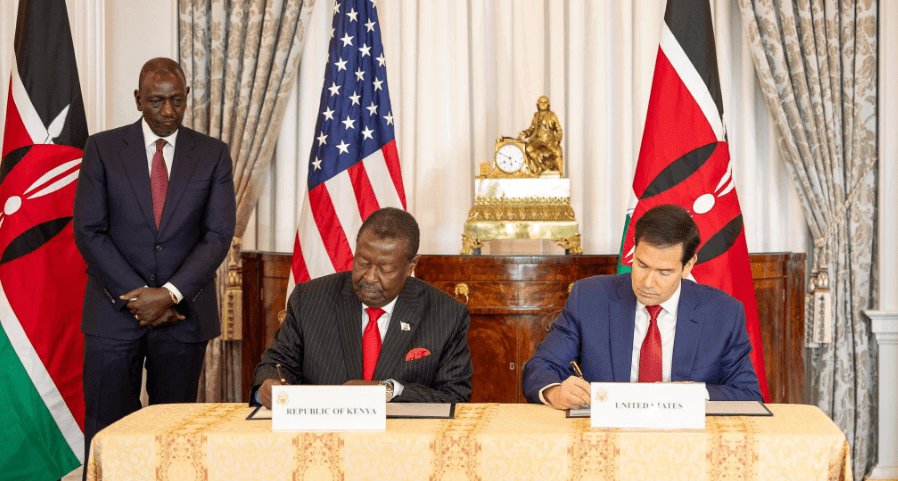
Two suspects were arrested while trafficking elephant tusks weighing 14 kilograms in an operation in Imenti North, Meru County.
Police
and Kenya Wildlife Service officials said the two were nabbed along Njuri
Ncheke Street near Post Bank in Meru Town.
The two suspects were found in possession of seven pieces of elephant tusks weighing approximately 14 kilograms and valued at Sh1.5 million.
This came as another group of three traffickers were arrested and 48 kilos of elephant tusks found on them in Kiritiri village, Embu County.
The three were arrested by a team of KWS personnel who had been tipped off that they were looking for the market of the tusks.
Officials put the value of the ivory at Sh4.8 million.
KWS officials and police said the cargo had been stuffed in two green gunny bags and was being transported on the Siakago-Kiritiri road when the arrests were made on May 28.
The suspects included a woman and had six pieces of ivory
with them on a motorcycle, police said.
They were detained ahead of the planned arraignment.
Officials said they suspect the tusks were obtained by poachers who killed at least three elephants in nearby game reserves.
The suspects were expected to face charges of being in Possession of Wildlife Trophies of Endangered Species Contrary to Section 92(4) of the Wildlife Conservation Management Act 2013.
Elephant tusks fetch a fortune in the black market as a surge in demand for ivory in the East continues to fuel the illicit trade in elephant tusks, especially from Africa.
The illegal ivory trade is mostly fuelled by demand in Asia and the Middle East, where elephant tusks and rhino horns are used to make ornaments and traditional medicines.
Officials say, despite a ban on the international ivory trade, African elephants are still being poached in large numbers.
As part of efforts to stop the menace, Kenya has started using high-tech surveillance equipment, including drones, to track poachers and keep tabs on elephants and rhinos.
KWS and stakeholders have put in place mechanisms to eradicate all forms of wildlife crime, particularly poaching. These mechanisms include enhanced community education, interagency collaboration, and intensive intelligence-led operations, among others.
At least 20,000 elephants are killed annually in
Africa for their ivory.
On April 30, 2016, Kenya set ablaze 105 tonnes of elephant ivory and 1.35 tonnes of rhino horn.
Former President Uhuru Kenyatta led world leaders and conservationists in burning the remains of 6,500 elephants and 450 rhinos killed for their tusks and horns.
Parliament has also passed strict anti-poaching laws, and the government has beefed up security at parks to stop poaching, which threatens the vital tourism industry.
Regionally, Kenya has also emerged as a major
transit route for ivory destined for Asian markets from eastern and central Africa.
















